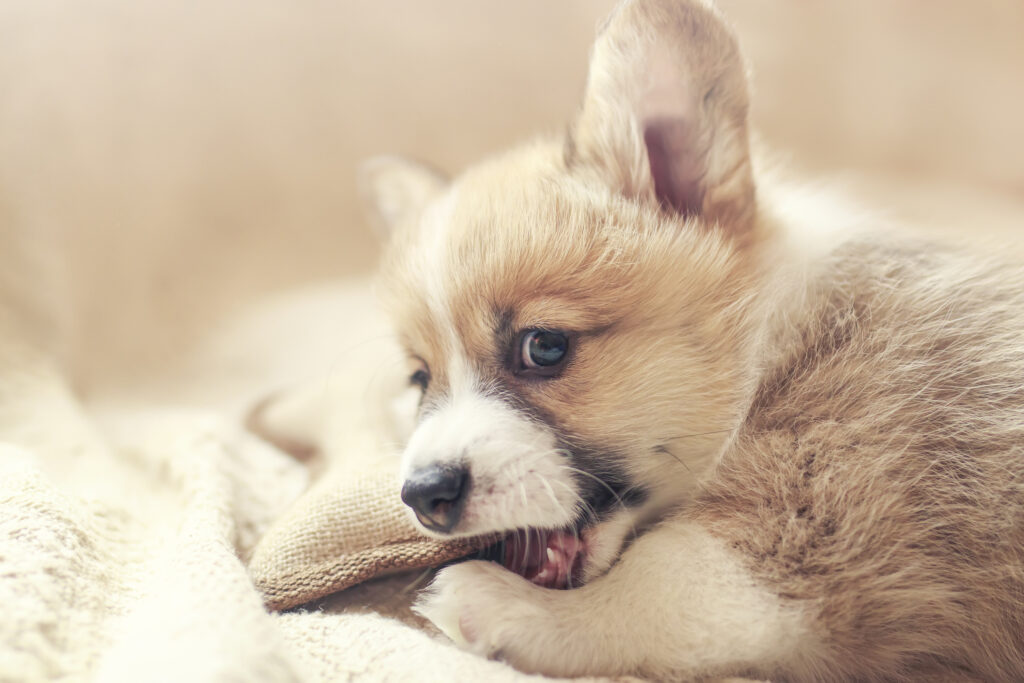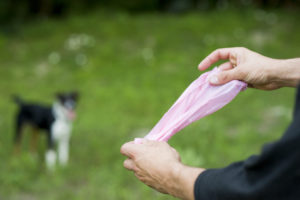Do Puppies Lose Teeth?
It can be pretty alarming to find that your puppy has a gap in their mouth where one of their teeth used to be, especially if there is also blood involved. So, is it normal for puppies to lose teeth?
Believe it or not, most mammals will have a set of baby teeth that they lose at a certain age. This also occurs in puppies, and they will likely lose a majority of their puppy teeth by the time they are around six months old. However, some puppies will lose their puppy teeth sooner, and other puppies may need to take more time.
In this article, we will be explaining everything that new puppy owners need to know about their puppy losing teeth. Let’s get into it.
Do Puppy Teeth Actually Fall Out?
Yes, puppy teeth do fall out of the puppy’s mouth. Some puppy owners may not notice this until there is a little gap in their teeth where a puppy tooth used to be. You may or may not notice the missing tooth itself, as it is not uncommon for puppies to swallow their puppy teeth.
It is also not unusual to notice that your puppy has a row of adult teeth growing in before they lose all of their puppy teeth, or behind their puppy teeth. Most of the time these puppy teeth will just fall out on their own once the adult teeth are fully grown in. However, veterinary intervention may be required to prevent issues caused by overcrowding in the mouth.
At What Age do Puppies Get All of Their Baby Teeth?
Puppies will have all their puppy teeth grown in by the time they are three to six weeks old. Since most puppy owners will not have their puppy before they are eight weeks old, you will most likely not need to worry about a puppy’s puppy teeth coming in.

Which Baby Teeth do Puppies Lose First?
Puppies tend to lose their incisor teeth before anything else. Incisors are the teeth that a puppy has in the front of their mouth on both the top and bottom. Once their incisors have fallen out, most puppies will lose their puppy canine teeth. These are the little, fang-like teeth at the sides of the mouth on both the top and bottom. Puppies do not have molars in their puppy teeth set, so you do not need to worry about them losing these.
Which Puppy Teeth are the Last to Fall Out?
Most of the time the puppy’s canine puppy teeth are the last to fall out. However, this is not necessarily true for every puppy. As a result, you do not need to worry if your puppy loses a canine puppy tooth before all their incisors have fallen out.
Do Puppies Bleed When They Lose Baby Teeth?
It is common for puppies to bleed a small amount right after losing a puppy tooth. However, this bleeding should not be extreme or persistent. As a result, you should contact your vet if your puppy is bleeding a lot from the mouth. This applies even if they are losing puppy teeth at the time of the bleeding.
How do Puppies Act When Losing Their Teeth?
Puppies may drool, have a reduced appetite, and be a bit irritable when losing their puppy teeth. This is especially true if they are losing many puppy teeth at one time. These symptoms are caused by the pain in the mouth that occurs during teething. Your puppy will also often chew and bite things more often when they are in their teething stage. They do this to soothe the pain and uncomfortable feeling in their mouth.
At What Age do Puppies Teethe the Most?
Most puppies will teeth the most between three and four months of age. However, some puppies will teeth later than others. As a result, it is not uncommon for puppies to start teething at around six to eight months of age in some cases.
At What Age do Puppies Lose Their Baby Teeth?
Most puppies will have lost all of their puppy teeth by the time the puppy is around four months old. However, some puppies will have lost all of their baby teeth at some time in their third month, while others can take up to eight months to have lost all of their baby teeth in some cases.
Do Puppies Swallow Their Baby Teeth?
Yes, many puppies will swallow their puppy teeth. It is completely normal for puppies to swallow their puppy teeth, and it is nothing that puppy owners need to worry about. This is because these teeth are very small and thin, so there is no risk of the puppy teeth hurting your puppy’s stomach.
Do Puppies Bite a Lot When Teething?
Yes, puppies are known to bite and chew a lot when teething. They do this in an effort to alleviate the pain that losing the puppy teeth causes. Additionally, puppies are also notorious for play biting and chewing on inappropriate objects. Though troublesome, this is normal puppy behavior that they tend to age out of as they age.
How to Help a Puppy Through Their Teething Period
Providing your dog with plenty of puppy-safe chew toys is a great way to help your puppy get through their teething period. This will allow them to relieve their pain, but by chewing on an appropriate object rather than everyday objects like shoes and furniture. Some puppy owners will also choose to freeze some things for their teething puppy to help soothe the pain in their mouth even more.
What Can You Freeze For Your Teething Puppy?
Many people will choose to freeze items for small children when they are teething. Well, you can do the same things for puppies as well! Here are some items that you can freeze for your teething puppy to help alleviate their pain.
- A rag or washcloth soaking in broth or water
- Kongs filled with puppy-safe fillings
- Ice cubes
Conclusion
Puppies lose their ‘baby’ teeth as a natural stage of the growing process. While many pet owners will get their puppies after most of the teeth have been lost, most pet owners will have to deal with puppy teething at one point or another.
If you live in the Fort Washington, Maryland area and are looking for assistance with puppy teething or puppy behavior, reach out to Indian Head Animal Hospital. Give us a call today at (301) 292-1150, or Request an Appointment Online.




